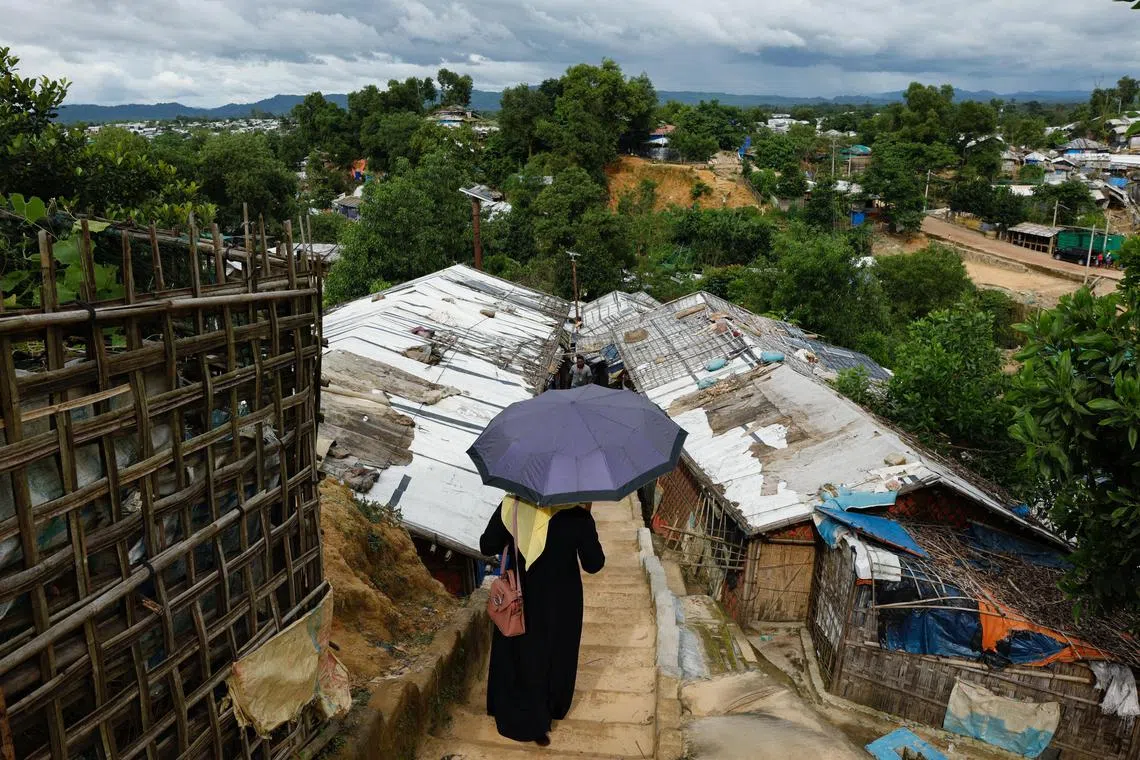UN demands end to Rohingyas’ ‘enduring misery’
Sign up now: Get ST's newsletters delivered to your inbox

A Rohingya refugee woman with an umbrella waling along a refugee camp in Cox's Bazar, Bangladesh, on Aug 17.
PHOTO: REUTERS
Follow topic:
GENEVA – The United Nations called on Aug 22 for citizenship, equality and security for Myanmar’s Rohingya minority, eight years on from the crackdown that sent more than a million fleeing into neighbouring Bangladesh.
The mostly Muslim Rohingya have been persecuted in Myanmar for decades, with many escaping the 2017 military clampdown.
“As we near the passing of another year with no justice for the violence which started on August 25, 2017 in Myanmar, we are left to ask the question of when the enduring misery for these and ongoing crimes will end, particularly for the long-suffering Rohingya community,” UN human rights office spokesman Jeremy Laurence said.
“Ending impunity and ensuring the Rohingya’s rights to security, citizenship and equality are essential for breaking the cycle of violence,” he told a press briefing in Geneva.
Mr Laurence said the human rights and humanitarian situation in Myanmar’s Rakhine State has sharply deteriorated since November 2023
The impoverished state – a riverine slice of coastal Myanmar bordering Bangladesh – has witnessed intense suffering in Myanmar’s civil war, triggered by a 2021 coup deposing the democratic government.
Both the military and local ethnic fighters from the Arakan Army “have committed and continue to commit serious atrocity crimes against the Rohingya with impunity – in flagrant violation of international law”, said Mr Laurence.
UN rights chief Volker Turk is calling for the international community to step up support for the Rohingya, he added.
Huge numbers of the stateless Rohingya community now live in squalid relief camps in Bangladesh.
Successive aid cuts have already caused severe hardship among Rohingya in the overcrowded settlements, where many rely on aid and suffer from rampant malnutrition. AFP

